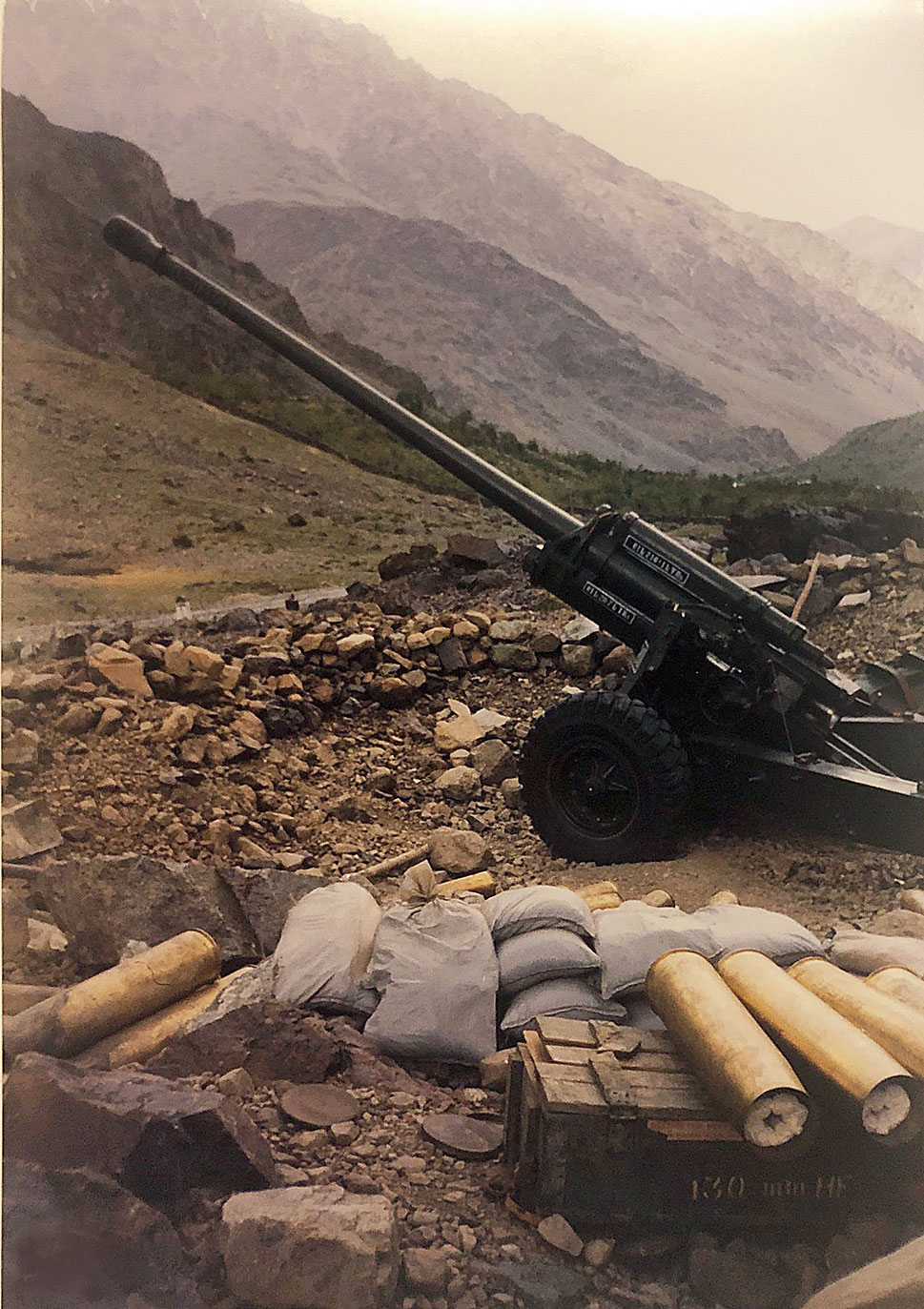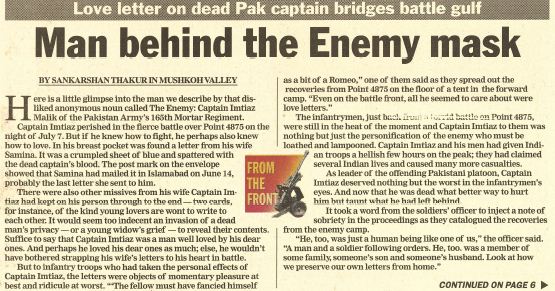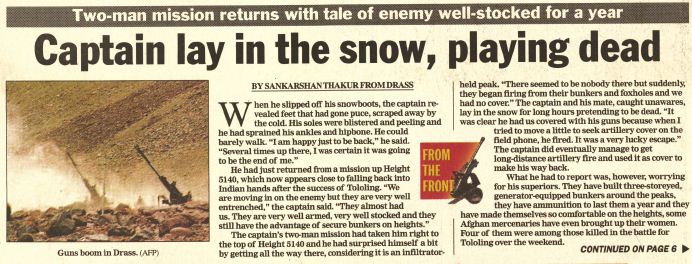The young officer was brief and blunt with the bad news. “It’s a near impossible mission, Sir,” he said, saluting his commanding officer. “We are working like mules on the heights and dying like dogs.” It was close to midnight and we were camped near an artillery unit. It was dark save when the guns flashed like claps of lightning tearing the ground. Rain and howling winds had pushed the temperatures well below zero; the snow tents fluttered like paper balls in a breeze, perilously close to being blown away. But the officer’s report was more numbing than the weather.
The field gun they had been trying to push up a ridge in the Tololing heights for two days was still stuck on the slopes. “It’s a heavy gun, Sir,” the officer said, “and we are having to carry it up a 70 degree gradient. There are no tracks, no mules to carry the load and the enemy is constantly firing from the other side. He is on a height just 400 metres across and we are just like sitting ducks for him.”
The commander sombrely listened and then smiled a sardonic smile. “That is why it makes my blood boil when I daily hear announcements from Delhi that we have taken this height and captured that peak. Here we are senselessly stuck trying to take a gun up to a point where it will be shot down in five minutes. And they have already been claiming from briefing rooms in Delhi that we have Tololing and Mushkoh. They should realise what we are up against. They should give some respect to the soldier on the front.” The point to which the gun had been ordered was barely half a kilometre from enemy positions and reports from observation posts said the risk of it being blown away were high. But the orders remained unchanged; the gun had to go up.
The commander had 120 men on the ridge pushing the gun and ammunition to positions from where they could mount an assault on the enemy-ridden peak. They were having to wade through freezing mountain nullahs by dark — no frontline operations are possible in daylight for the men are too exposed to enemy fire — and climb up gravel and snow, often under fire. In places, they were having to tie themselves and their equipment with rope and plough through chest-deep snow, night after night. They had no food — what was sent from bases down below was freezing to stone — and they were having to gulp snow to escape dehydration. “The army is meant to face difficulties and overcome them. That is what a soldier’s training is. We are following orders and we are ready to die. We are doing all that but then higher-ups should sometimes understand logic and common sense,” the commander fumed. His unit had just come from the plains and been ordered to action on dizzyingly cold heights. Most of his jawans had had no opportunity to get acclimatised to the weather on the terrain. They did not know the mountain routes, nor had any idea of enemy positions. But they were manfully lugging a 300-kilo gun barrel and much else over boulders and snow. “We have the comfort of tents and we are at a much lower altitude. Imagine that jawan trudging in the snow at that height.”
Every now and then, technicians from the signal van would arrive with new grid positions and firing trajectories. They were trying not only to give artillery cover to soldiers climbing up but also to directly hit enemy bunkers and pickets in the mountains. The battery fired all night, the Bofors and medium-range guns blasting the silence and lighting up the rainy night like strobes in a frightening theatre.
News was crackling from a radio in one corner of a dimly-lit tent. “Reports of heavy fighting on the India-Pakistan border have been received... Indian officials claimed significant gains in the Drass sector where the artillery battle has been intense according to wire reports. Meanwhile, the Pakistani foreign minister, Sartaj Aziz, who is on a visit to Beijing, is likely to meet his Indian counterpart in New Delhi for talks on...” The young officer, tired after his long march up and down the height, quietly wondered what they were going to talk about. “They are mutilating our soldiers, they are invading our territory and claiming it as their own and we want to talk to them. About what?”
His commander, meanwhile, had spoken to his superiors and his orders were clear and as before. The gun had to be taken up at any cost. The message was quietly relayed to the young officer. “At any cost, Sir,” he said, his voice suddenly crisp. “We will take it up at any cost.” He rose, saluted and walked out into the thundery night.
This story was first published in The Telegraph in 1999













